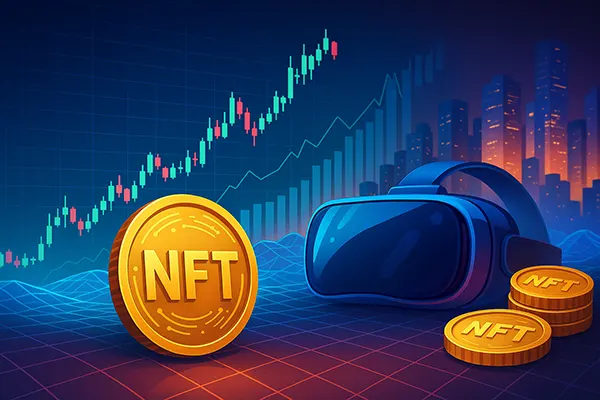
Paid Surveys with Cryptocurrency Rewards: How to Earn from Home in 2025
Remote income opportunities have diversified significantly in recent years, and one of the most discussed trends in 2025 is earning through paid surveys with cryptocurrency rewards. Unlike traditional survey platforms that offer gift cards or fiat money, these surveys pay participants directly in digital assets such as Bitcoin, Ethereum, or stablecoins. This model combines the accessibility of online surveys with the growing demand for flexible, borderless payment solutions.
How Paid Surveys with Crypto Rewards Work
Survey providers partner with companies seeking consumer insights and offer participants the chance to share their opinions in exchange for crypto payments. To join, individuals usually register on a survey site, complete their profile, and receive tasks tailored to their demographics and interests. Payments are credited in cryptocurrency wallets after completion, often with instant or near-instant transfers.
In 2025, the process has become much smoother thanks to blockchain integration. Smart contracts guarantee transparency, ensuring participants receive the promised compensation. This reduces the risks of delayed or missing payments, a common issue in traditional survey systems.
Moreover, the widespread use of stablecoins such as USDT and USDC has made earnings less volatile. While Bitcoin and Ethereum remain popular options, stablecoins allow survey takers to secure predictable value without exposure to market fluctuations.
Advantages Compared to Traditional Payment Methods
One of the most notable advantages is global accessibility. Participants from countries with limited access to PayPal or bank transfers can still get paid seamlessly in cryptocurrency. This opens doors for millions of people worldwide, particularly in regions with underdeveloped banking infrastructure.
Another advantage is lower transaction costs. Sending small payments internationally often incurs high fees, but crypto transfers typically involve minimal charges. This makes micro-rewards practical and sustainable for survey providers.
Finally, cryptocurrency rewards provide participants with an additional layer of financial freedom. Earned assets can be held as investments, exchanged for local currency, or even used directly for online purchases, reflecting the increasing integration of digital assets into everyday transactions in 2025.
Best Practices for Earning Safely in 2025
While the opportunity is attractive, participants should carefully assess the legitimacy of survey providers. Scams remain a risk in the online earning space, and crypto payments can be difficult to recover once sent. Therefore, it is essential to choose well-reviewed providers that have a proven track record of paying fairly and consistently.
Another best practice is to use secure digital wallets. Cold wallets or hardware devices provide stronger protection compared to standard hot wallets. Since surveys usually pay smaller amounts, many users prefer keeping their funds in mobile wallets with two-factor authentication until withdrawals reach larger sums.
Additionally, managing taxation obligations is crucial. In most jurisdictions by 2025, cryptocurrency income is taxable. Keeping accurate records of received payments helps avoid legal complications and supports financial transparency.
Recognising Reliable Survey Providers
Reputable companies often collaborate with known market research firms, ensuring surveys are genuine and relevant. They also provide clear payment structures upfront, with no hidden fees or unexpected conditions. Transparency is a key indicator of reliability.
Community feedback is another useful tool. Online forums, social media groups, and review platforms can help users identify trustworthy providers while avoiding scams. In 2025, independent verification websites have also become common, ranking survey sites based on payout consistency and user satisfaction.
Finally, secure integration with popular wallets or exchanges demonstrates credibility. Providers offering direct payments to recognised services such as Binance, Coinbase, or Trust Wallet are generally more reliable than those requiring obscure or unfamiliar wallets.

Future Outlook of Crypto Survey Earnings
The trend of crypto survey earnings is expected to continue growing as blockchain adoption becomes mainstream. Companies value fast, cost-effective feedback from global audiences, and cryptocurrency makes this exchange efficient and attractive. By 2025, some businesses even offer surveys exclusively in digital assets, reflecting changing economic habits.
The role of artificial intelligence in tailoring surveys is also expanding. AI tools analyse user preferences and behaviour to deliver highly relevant questions, improving data quality for companies while boosting earnings potential for participants. This personalised approach increases engagement and ensures fairer compensation.
Finally, regulatory frameworks around cryptocurrencies are gradually becoming clearer. As governments establish tax and compliance guidelines, participation in crypto-paid surveys is gaining more legitimacy. This helps both users and providers operate in a secure and transparent environment, building trust in the long-term sustainability of the model.
Impact on the Remote Work Landscape
Crypto surveys represent just one part of the evolving remote income ecosystem. They provide an accessible entry point for individuals seeking additional income streams without specialised skills or significant time investment. This inclusivity supports a more diverse remote workforce.
In many cases, crypto surveys act as a gateway to deeper involvement in the digital economy. Participants often use their earnings to explore trading, decentralised finance (DeFi), or even staking opportunities, expanding their financial literacy and independence.
Ultimately, the spread of paid surveys with cryptocurrency rewards contributes to redefining the future of work. By combining consumer engagement with blockchain payments, they highlight how technology continues to reshape earning opportunities in 2025 and beyond.




